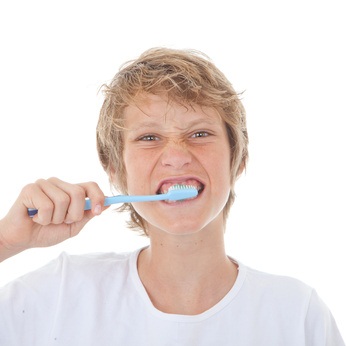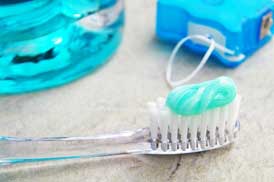Dental Myth 1: Pregnancy steals calcium from your teeth causing you to have more cavities
During pregnancy there are many changes that occur to your body as a result in the influx of hormones. Also, there is typically a change in diet due to restrictions imposed to protect the baby. These two factors amid many others (most notably the exhaustion that most expecting mothers feel as well as symptoms of morning sickness) can lead to a change in the risk for cavities that they may face. For example, most pregnant women eat less artificial sugars than they may have previously and are forced to switch to regular sugar, this coupled with being more tired than usual and perhaps a lax in brushing and flossing can cause them to develop cavities during pregnancy. Although there may be other factors at play, such as a subtle change in the oral environment during pregnancy, we typically do not find that calcium is leeched from the teeth and in turn causing more cavities, but more often a series of subtle changes that make you more susceptible to developing cavities.

Dental Myth 2: Wisdom teeth push your teeth and make them crooked
Dental eruption is normally a passive process. In other words, with the exception of primary or baby teeth, we do not usually see an effect of adult teeth destroying or moving the teeth next to them during the eruption process. The correlation between teeth shifting, or appearing more crooked, and the eruption or presence of wisdom teeth can be attributed to several other factors which are still under debate.
Dental Myth 3: You do not have to wear your retainer after a year
Some patients happen to be lucky and get away with not having to wear their retainers after completing orthodontics. But the vast majority of us will see relapse and the teeth will shift back to where they were moved from. The forces that put our teeth in the original position are still present. Retainers fight these forces from pushing the teeth back to their original place.
Dental Myth 4: Adults do not need to use fluoride
Fluoride bonds with enamel and makes it stronger, therefore preventing acids from penetrating teeth and causing cavities. Adults will benefit from strong enamel just as a child would.
Dental Myth 5: Cavities cause pain
If a cavity is causing you pain it is because it has penetrated the enamel and is now into the softer and more sensitive layer of the tooth called dentin. If the cavity really hurts, it probably is now past the dentin layer and into the nerve. That is when root canal therapy is necessary. Many cavities do not penetrate through the enamel and therefore do not cause pain.
]]>








